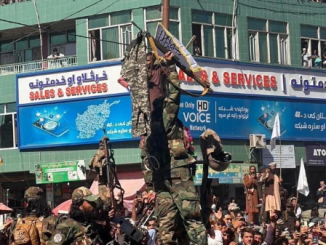
| Published May 28, 2025
In a significant policy shift, German Chancellor Friedrich Merz has announced the removal of range restrictions on German-supplied weapons to Ukraine, allowing Kyiv to target military positions within Russia. This move aligns Germany with allies like the UK and France, who have already provided similar support, and marks a departure from the more cautious approach of former Chancellor Olaf Scholz.
Chancellor Merz emphasized the necessity of continued and intensified support for Ukraine, framing the conflict as a broader challenge to the post-1990 European political order. He stated, “We may have to prepare for a longer duration,” acknowledging the potential for a protracted war due to Russia’s reluctance to engage in meaningful peace negotiations.
The policy change has not been without controversy. Within Germany, politicians from the SPD and the Left Party have criticized the decision, expressing concerns over potential escalation and advocating for renewed diplomatic efforts. Despite internal dissent, Merz defended the measure, asserting Ukraine’s right to use supplied weapons against military targets in Russia.
Ukrainian President Volodymyr Zelenskyy’s recent visit to Berlin underscores the deepening ties between Germany and Ukraine. During the visit, discussions included the joint production of long-range missiles without range restrictions, further solidifying Germany’s role as a key military partner to Ukraine.
The implications of Germany’s decision to allow Ukraine to strike military targets inside Russia using Western-supplied weapons are wide-ranging and consequential for both the geopolitical landscape and internal European politics:
1. Escalation Risk with Russia
Germany’s policy shift could provoke a strong reaction from the Kremlin. Russia has repeatedly warned that strikes within its territory using NATO weapons could be seen as direct Western involvement. This increases the risk of retaliation not just against Ukraine, but potentially against NATO interests.
2. NATO Unity and Credibility
Germany’s move aligns it more closely with the UK and France, signaling stronger unity within NATO in support of Ukraine. It may also pressure more hesitant allies to reassess their positions, potentially accelerating weapons deliveries and operational freedom for Ukraine.
3. Strategic Gains for Ukraine
Ukraine now has a broader set of options to neutralize Russian military operations and logistics hubs that are just across the border—places previously off-limits. This could shift battlefield dynamics, especially around Kharkiv and the Donbas region.
4. Domestic Political Tensions in Germany
Chancellor Merz faces backlash from left-leaning parties and pacifist elements of German society. Critics fear the move may drag Germany deeper into the conflict and erode its post-WWII defense caution. This may become a polarizing issue domestically.
5. A Signal of Long-Term Western Commitment
Merz’s warning to “prepare for a longer war” reflects a strategic calculus that this conflict may extend beyond 2025. It suggests the West is not only preparing for prolonged support but also reshaping defense industries and budgets for sustained military engagement.
6. Pressure on Diplomatic Channels
As military options expand, diplomatic momentum may falter. Russia might perceive less incentive to negotiate if it believes NATO is increasingly militarized and committed to Ukraine’s maximalist goals.
7. Changing European Security Doctrine
Germany, historically restrained in military matters, now takes a front-line leadership role. This could mark a turning point in post-Cold War European security policy, where major EU powers adopt a more assertive defense posture.
Overall Takeaway:
Germany’s decision to allow Ukraine to strike inside Russia using Western arms—paired with Chancellor Merz’s call to “prepare for a longer war”—marks a turning point in Europe’s stance on the Ukraine conflict. It signals a shift from cautious support to open, long-term military backing, with broader consequences for NATO unity, European defense policy, and global stability.
This move solidifies Germany as a leading player in shaping the future of the war and reflects growing Western consensus that a decisive Ukrainian defense is worth the risk of escalation.
SOURCES: ZEROHEDGE – Merz Says ‘Prepare For Longer War’ As Germany Steps Forward As Key Backer Of Ukraine
AL ARABIYA – Ukraine now free to strike military targets in Russia with Western arms, Germany says
REUTERS – Ukraine’s Zelenskiy lands in Berlin for talks with Merz on ending the war
AP NEWS – Zelenskyy visits Berlin as he seeks more support for Ukraine’s defense as Russia steps up attacks
TIME – What Germany’s Green Light for Ukraine to Strike Inside Russia Means for the War





Be the first to comment